Algeria recalls its envoy after France backs Moroccan claim in W. Sahara
Algeria has withdrawn its ambassador from France after Paris sided with Morocco in Rabat’s claim in the two neighboring African countries' decades-long territorial dispute over Western Sahara.
Algiers announced on Tuesday it was withdrawing its ambassador to Paris after French President Emanuel Macron said Rabat’s proposed plan for Western Sahara's autonomy under Moroccan sovereignty was the “only” solution to the long-time territorial dispute.
Earlier on Tuesday, Macron had congratulated Morocco’s King Mohammed VI on his 25th coronation anniversary, pointing out in his congratulatory note that Rabat’s limited autonomy plan for Western Sahara was “the only basis that will lead to a just, lasting and negotiated political solution” in Western Sahara.
Macron noted, "The present and future of Western Sahara fall within the framework of Moroccan sovereignty,"
Political observers said France's recognition of Moroccan sovereignty over the region signals a clear change of direction in Paris' long-standing position on the status of Western Sahara.
Rabat welcomed Paris' decision as a "significant development in support of Moroccan sovereignty over the Sahara."
In contrast, Algeria expressed "great regret" and strongly denounced Paris' decision, adding there would be consequences.
“The Algerian diplomatic representation in France is now the responsibility of a charge d’affaires,” the Algerian foreign ministry was quoted as saying by Algeria’s APS news agency.
When Madrid took sides with Morocco's autonomy plan in 2022, Algiers took similar measures against Spain, the former colonial power in Western Sahara which held on to the territory until 1975 when the Spanish dictator Francisco Franco died,
Meanwhile, in response to France's foreign policy shift, the Algeria-backed Polisario Front, vowed to push back against Morocco and France.
Polisario Front claims independence for Western Sahara and advocates for establishing an independent Sahrawi state.
The territorial dispute in Western Sahara dates back to 1975 when Morocco, along with Mauritania, annexed the territory of Western Sahara.
Since then Western Sahara has been disputed between Morocco and the region's indigenous Sahrawi people, led by the Polisario Front.
France, as the former colonial power in the region, has been attempting to play the role of a mediator.
The conflict eventually ended in 1991 with a truce brokered by the UN, and the promise of an independence referendum which has yet to take place due to disagreement over who should vote and how it should be conducted. Recent UN Security Council resolutions have not mentioned the option, urging the parties to work together for a realistic solution based on compromise among the neighboring countries.
Meanwhile, a buffer zone covered with landmines and fences stretches the length of the disputed territory. It separates the Moroccan-administered western portion from the eastern area controlled by the Polisario Front.
In 1976, the Polisario Front founded the Sahrawi Arab Democratic Republic (SADR), a government in exile in Algeria, which is recognized by many governments and is a full member of the African Union.
Following the death of long-term president Mohamed Abdelaziz Ezzedine, Brahim Ghali was elected leader of the Polisario Front and president of the SADR in July 2016. He was one of Polisario's founding members in 1973 and led the first raids against the Spanish forces that sparked the armed struggle for Western Saharan independence in 1976.
The mineral-rich Western Sahara region is home to vast phosphate reserves and fishing grounds off its coast.
The Western Sahara region is also believed to have huge untapped offshore oil deposits.
Israeli strikes kill 88 Palestinians in northern Gaza
American voters plainly rejected complicity in Gaza genocide: Iran FM spox
ICC should issue more arrest warrants for Israeli authorities over Gaza genocide: UN expert
Israel using AI weapons co-produced by India in Gaza genocide: Report
Israel issues new evacuation orders, shortly launches strikes on southern Lebanon
VIDEO | Press TV's news headlines
From Iraq to Gaza: The great disconnect between British people and rulers
Syria condemns Israel's killing of 36 in 'horrific' strike on Palmyra


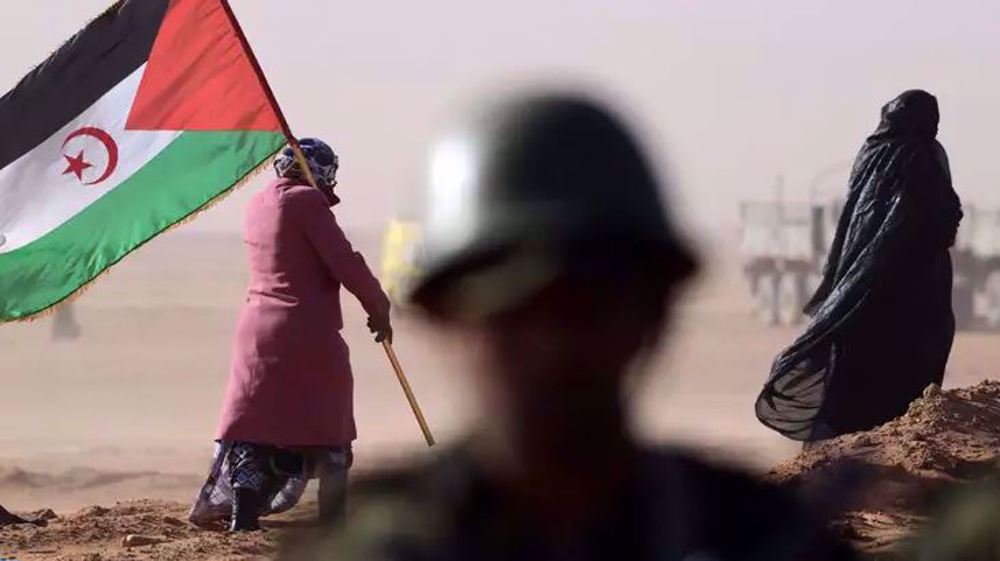
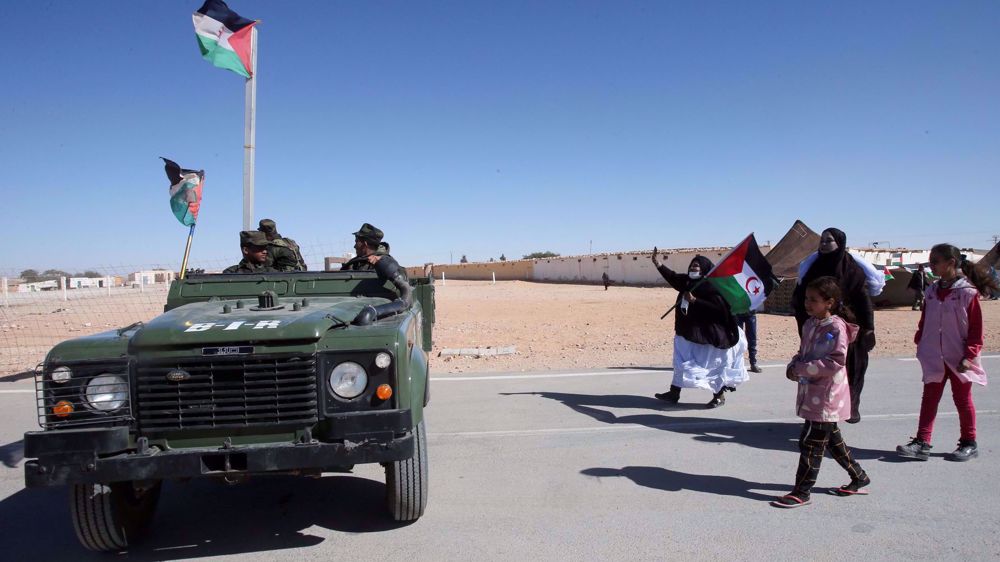







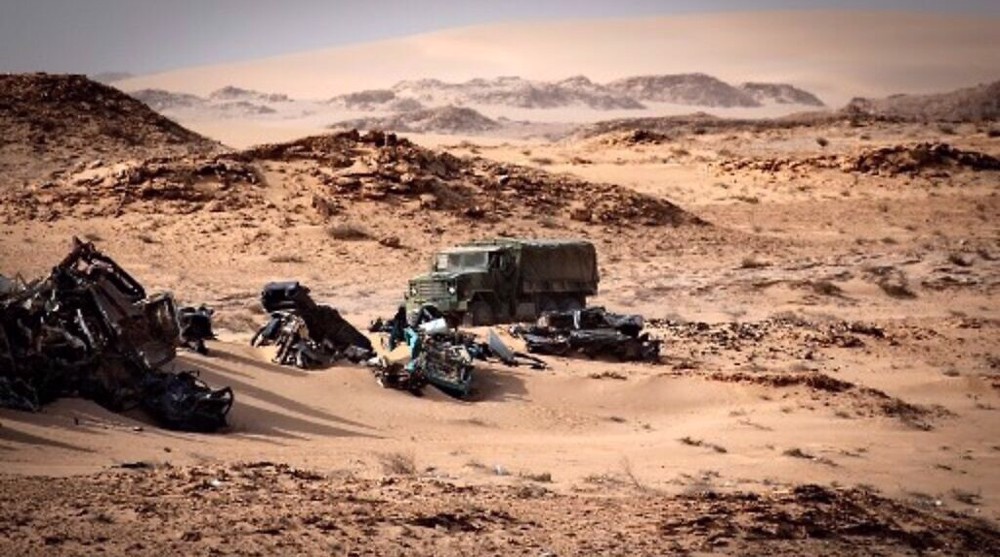
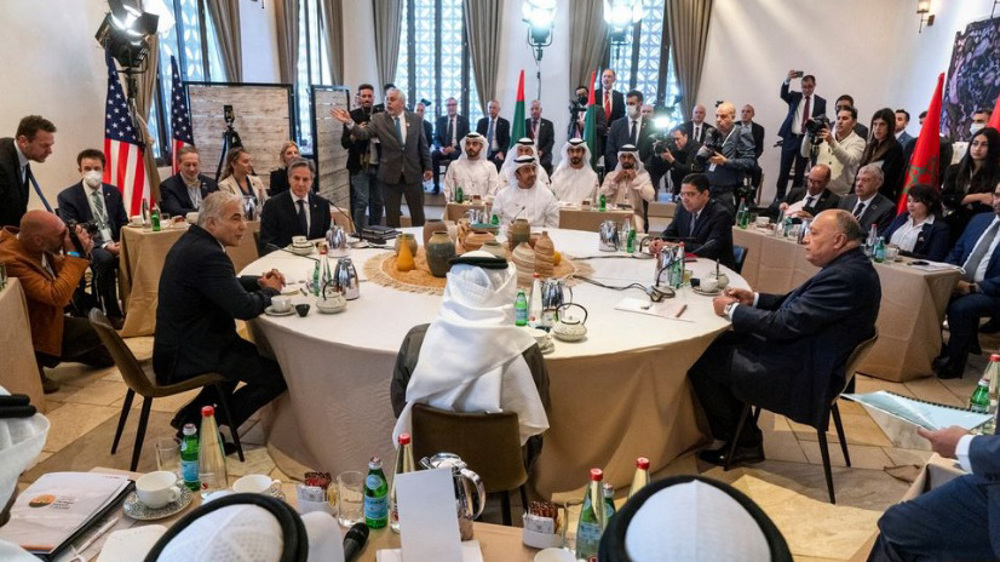

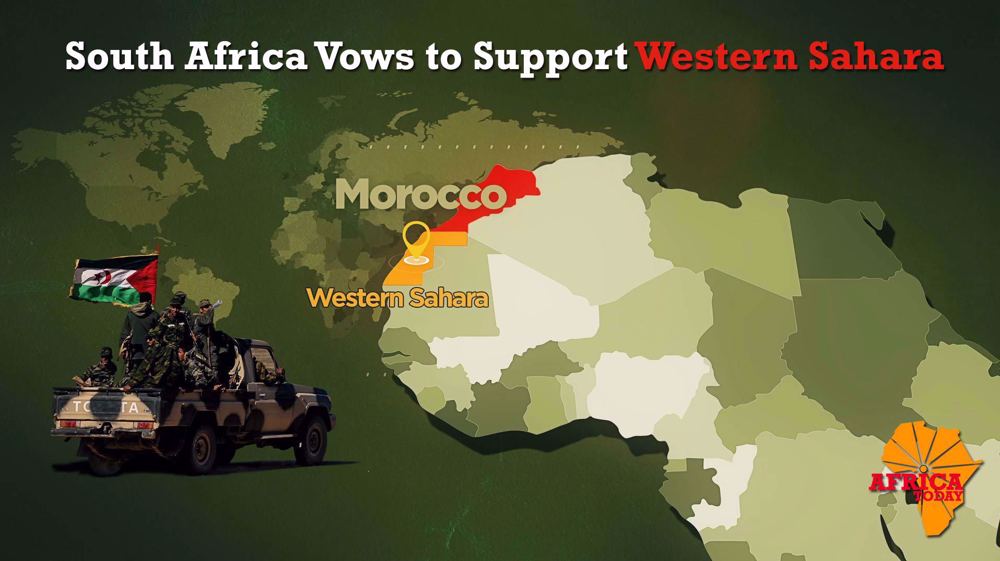

 This makes it easy to access the Press TV website
This makes it easy to access the Press TV website